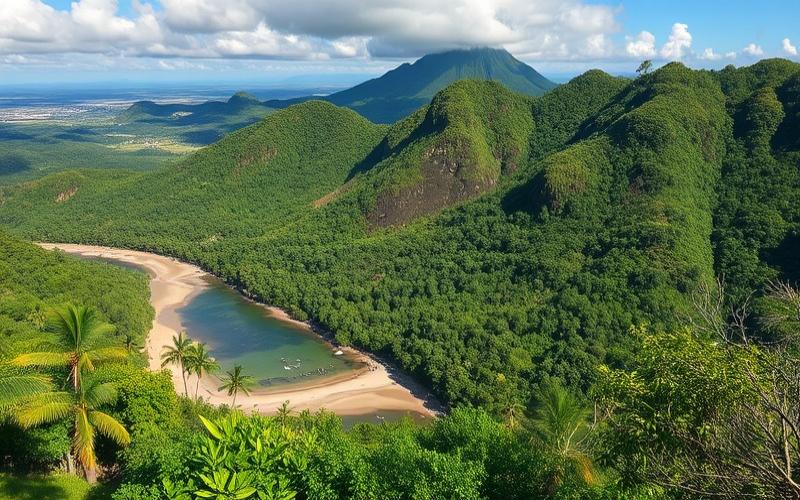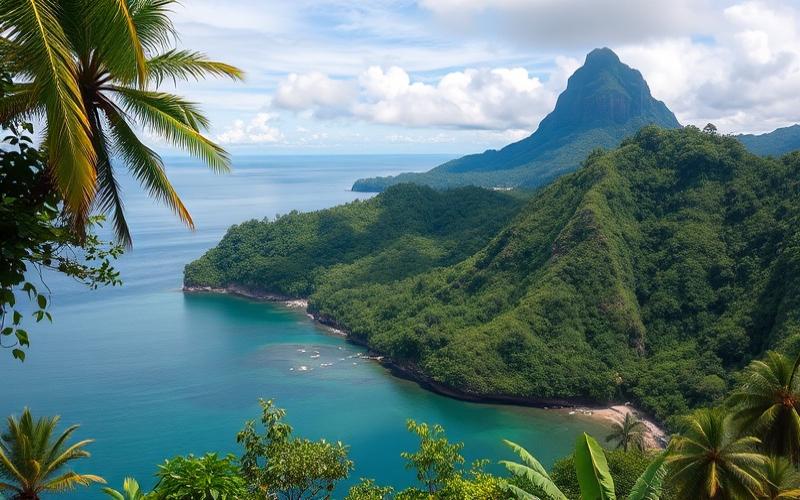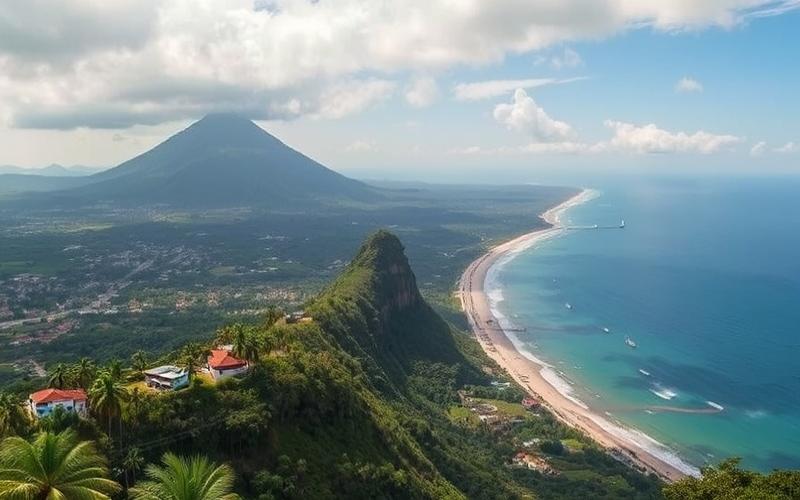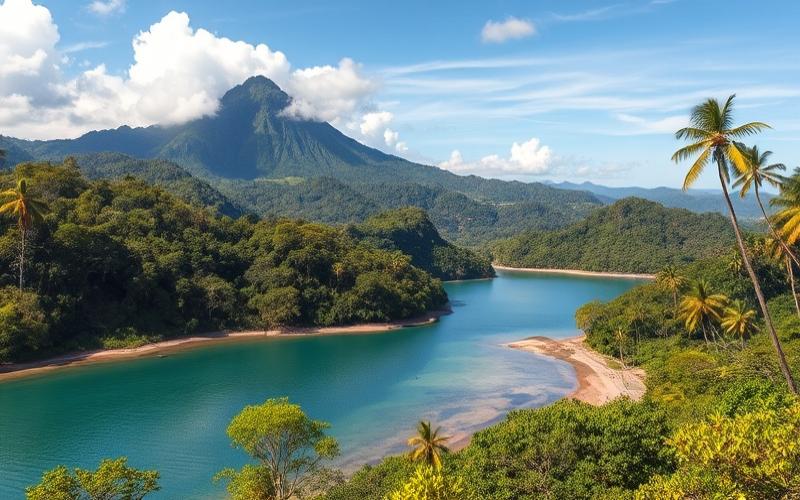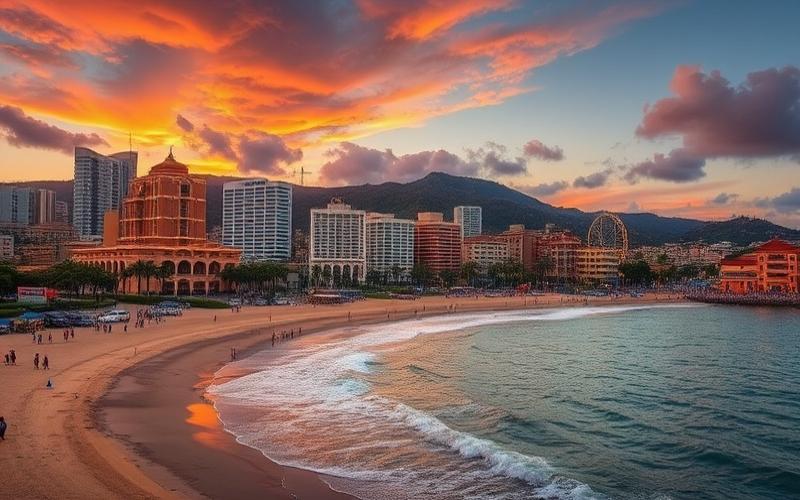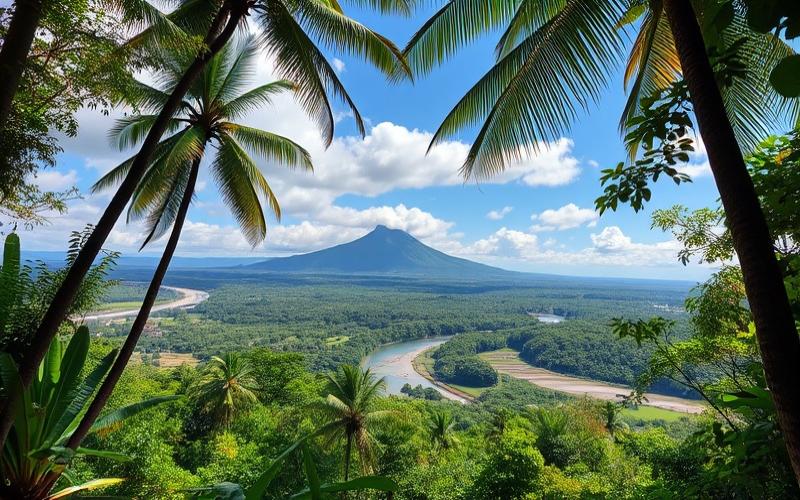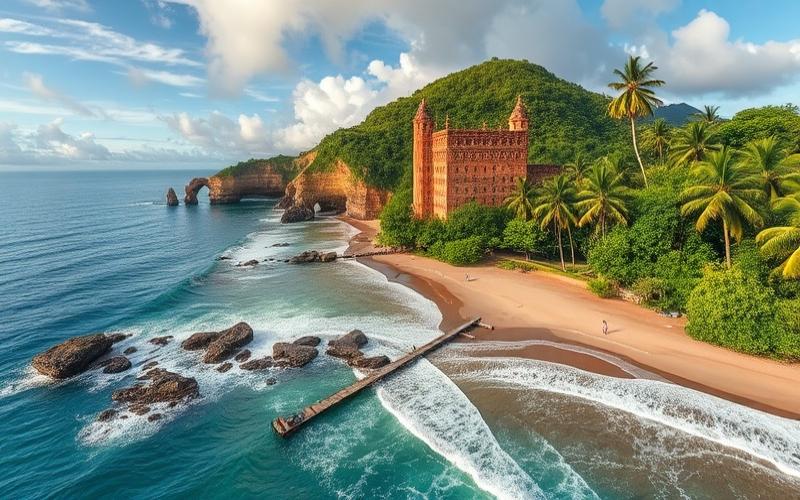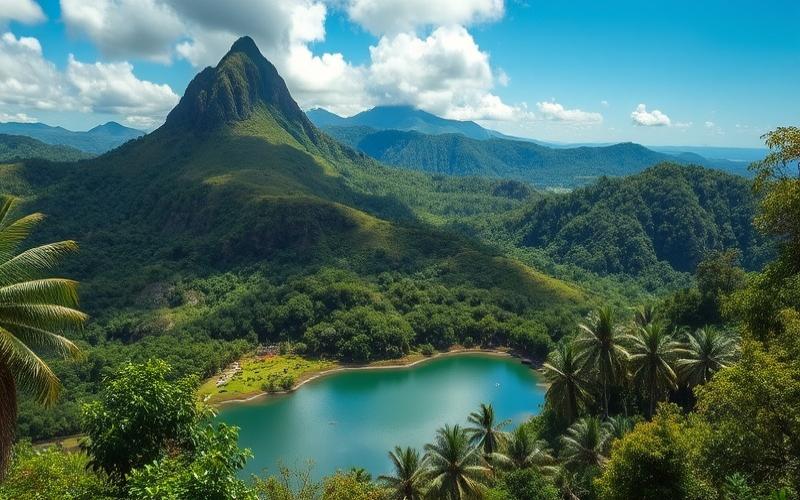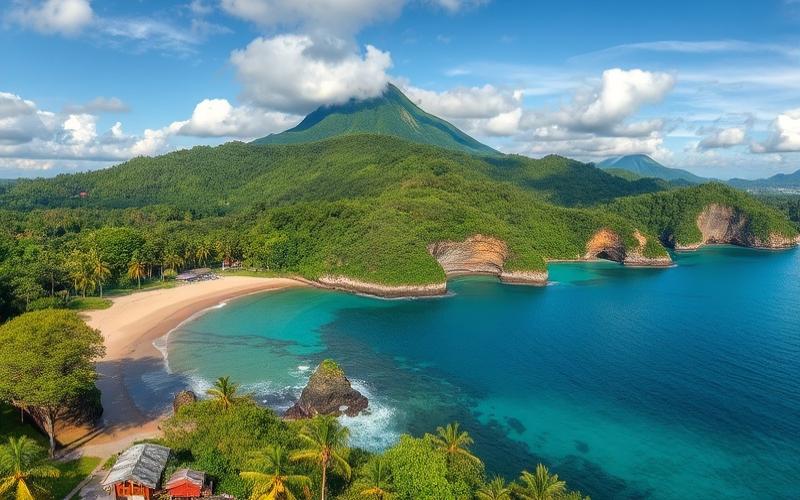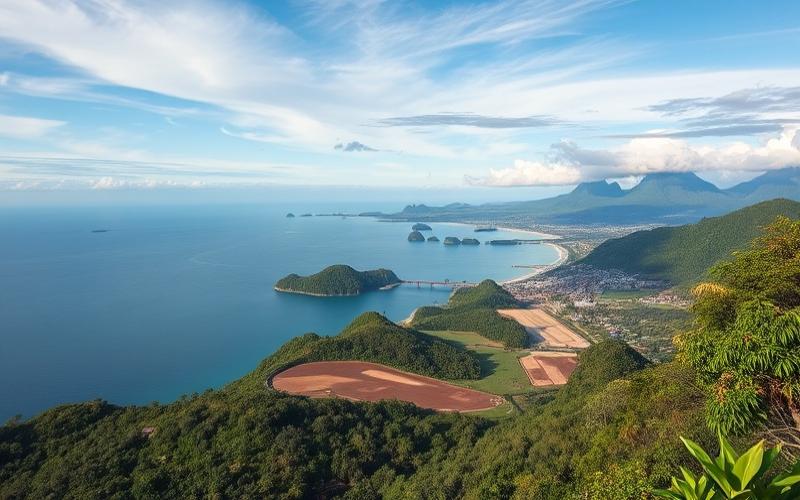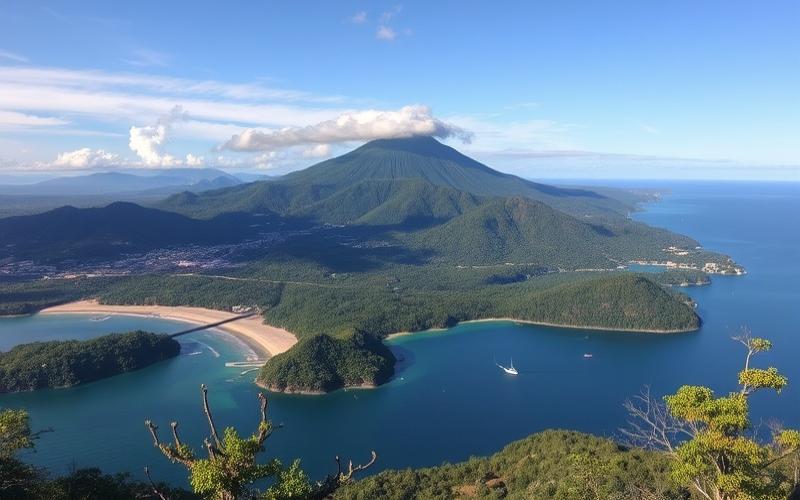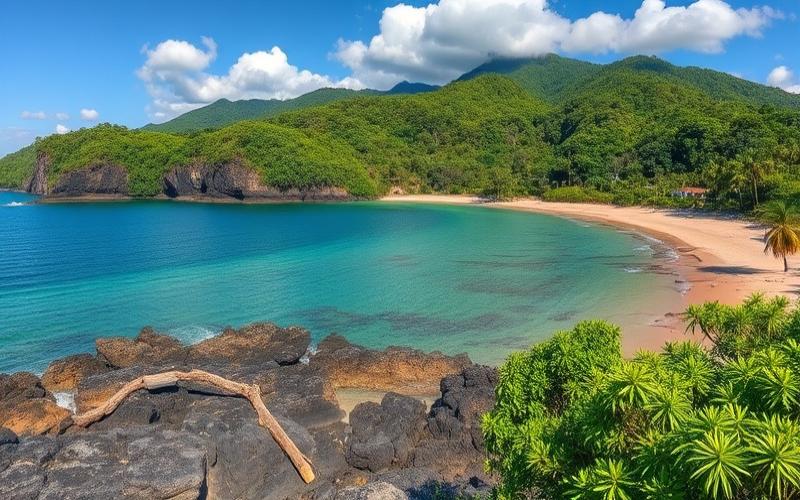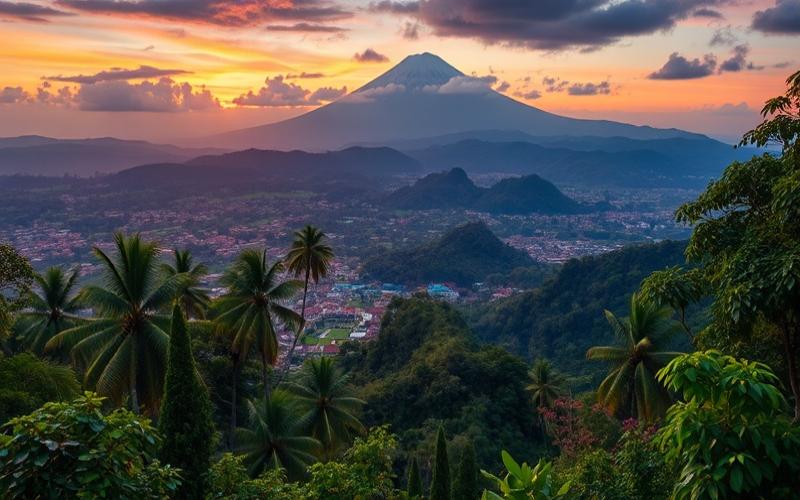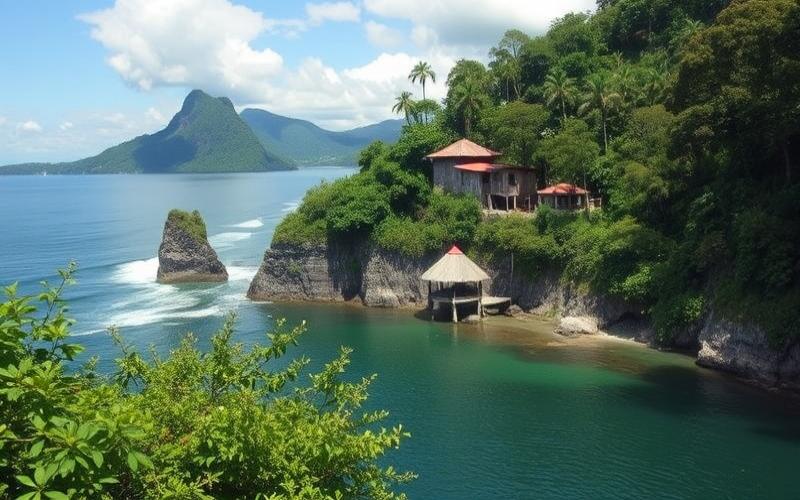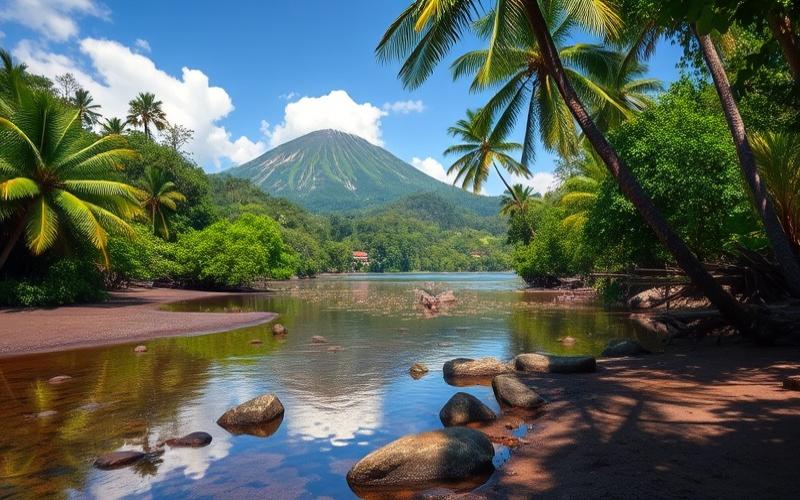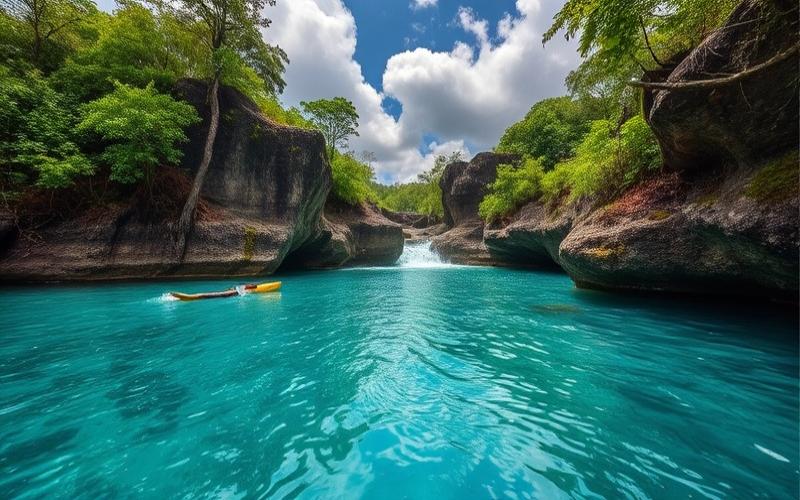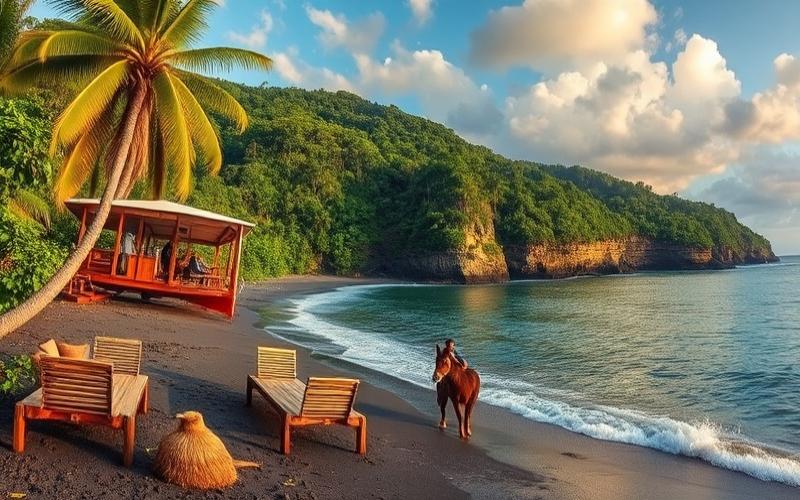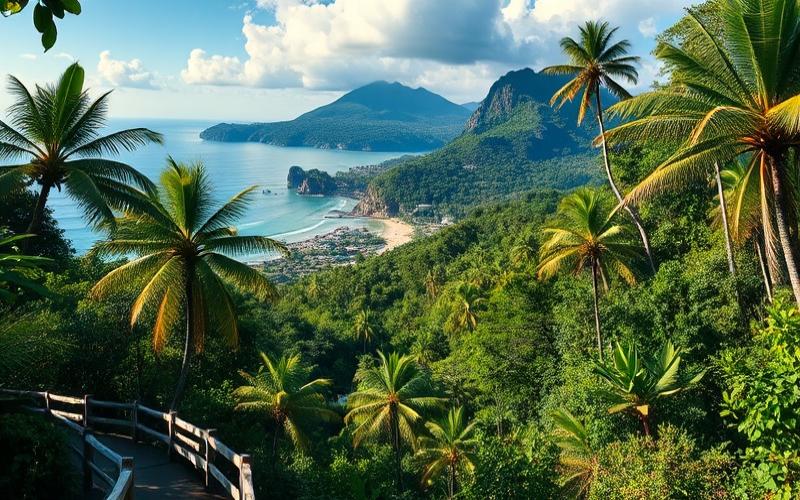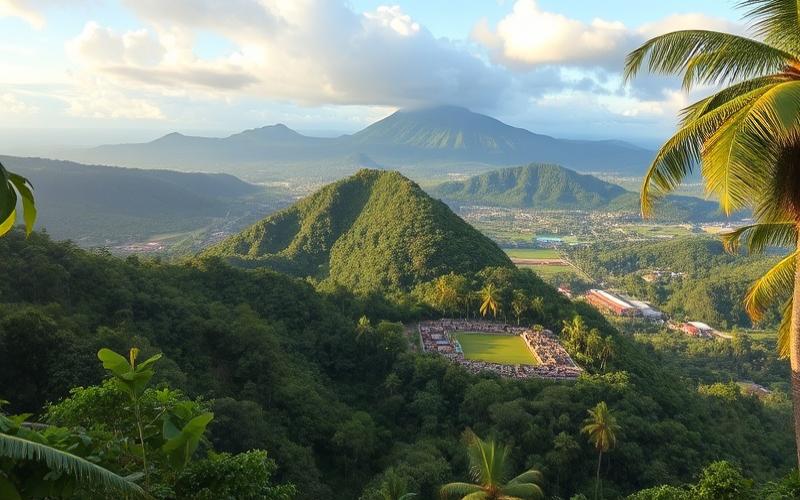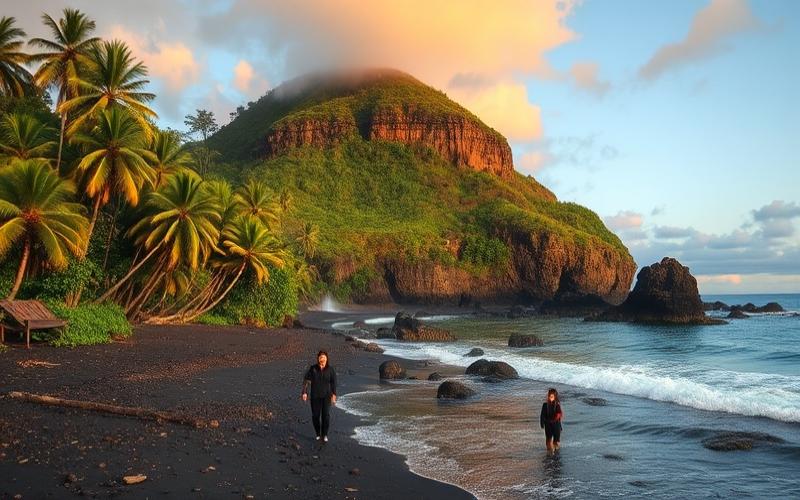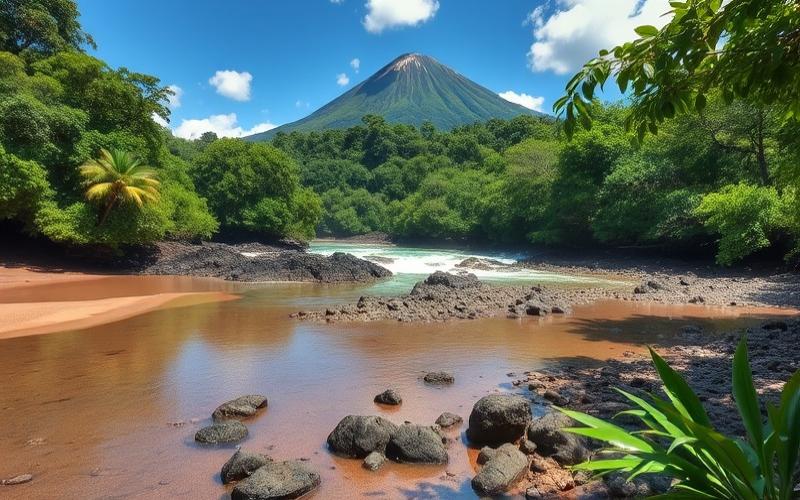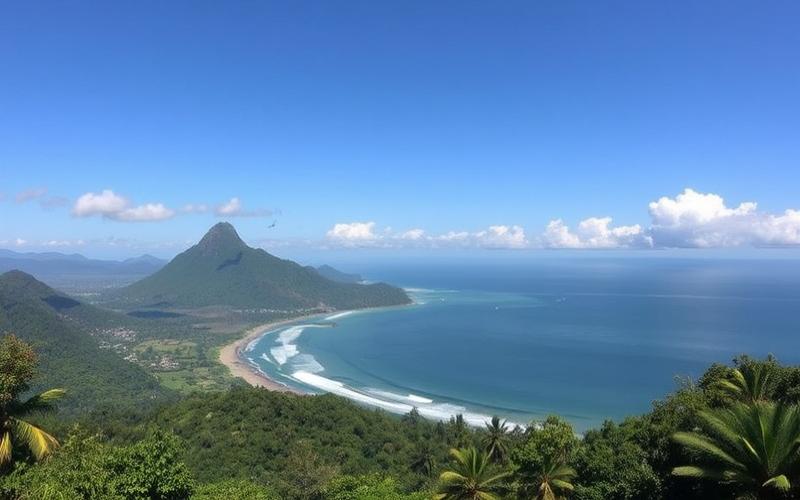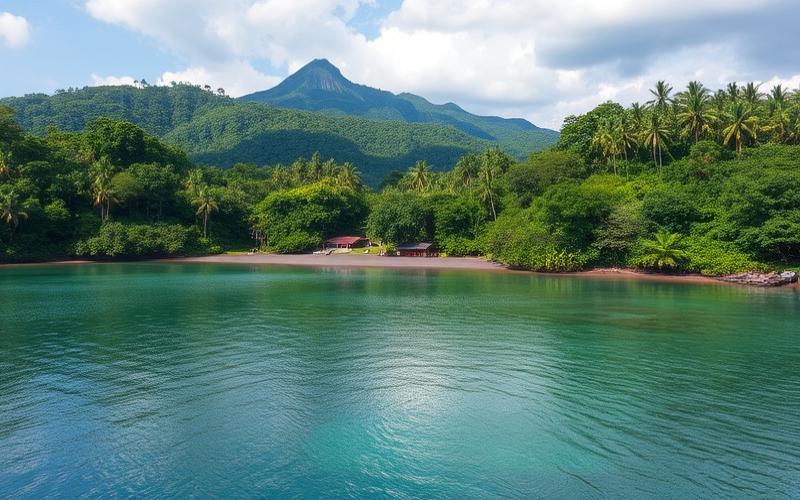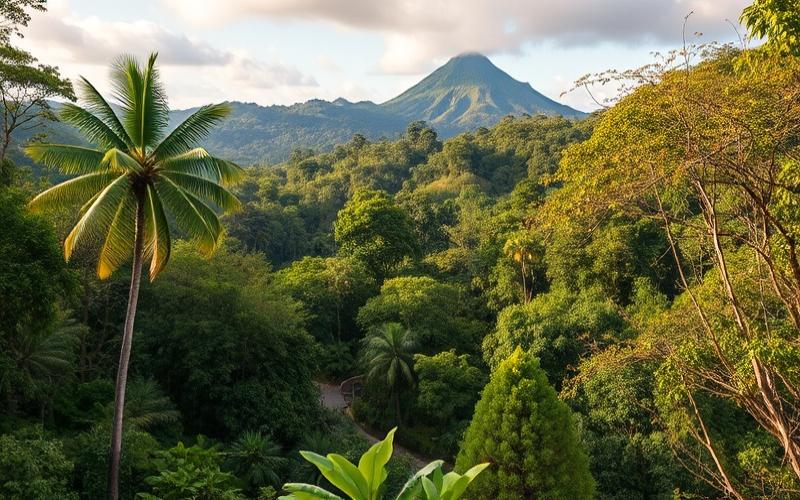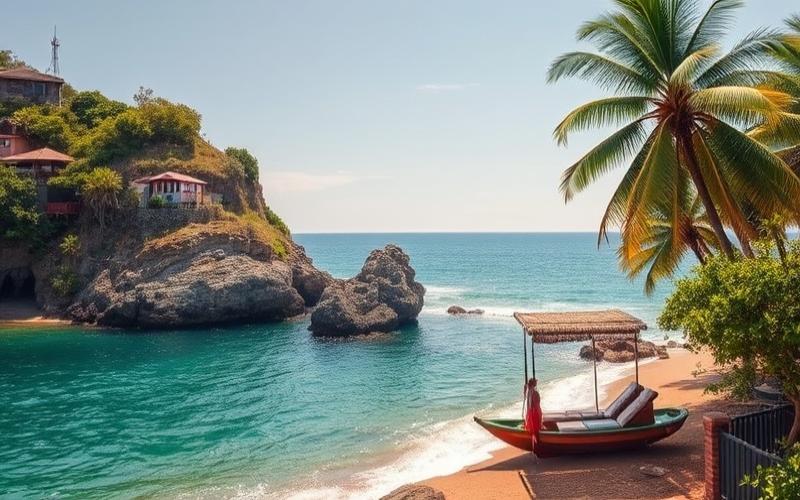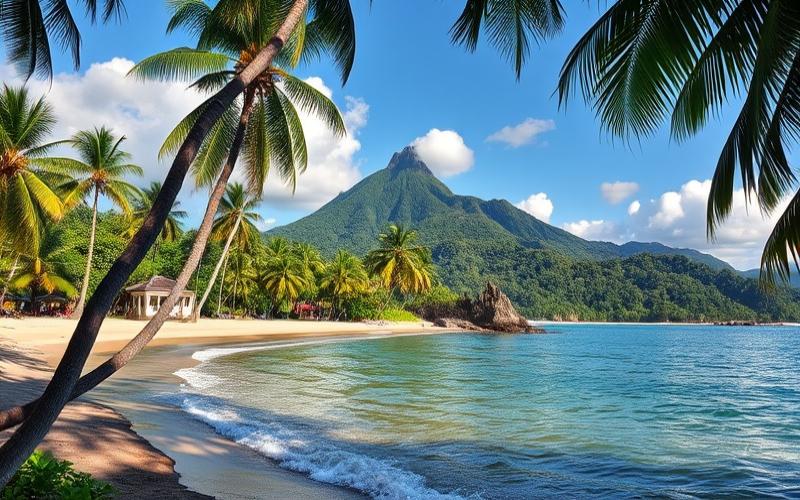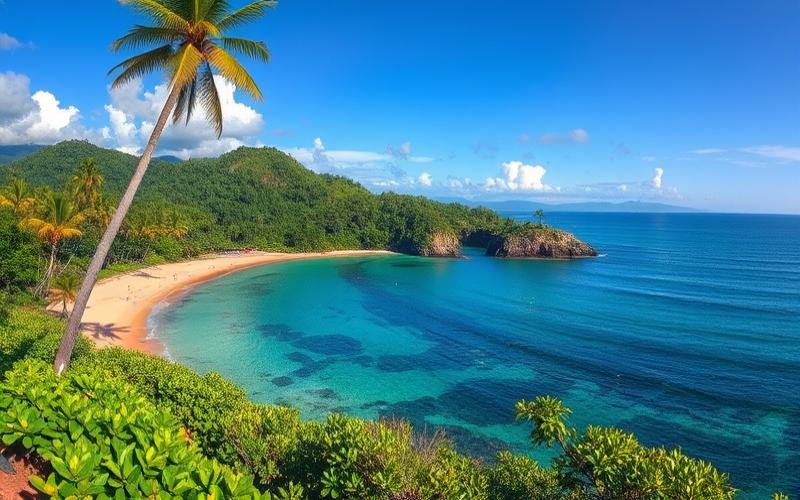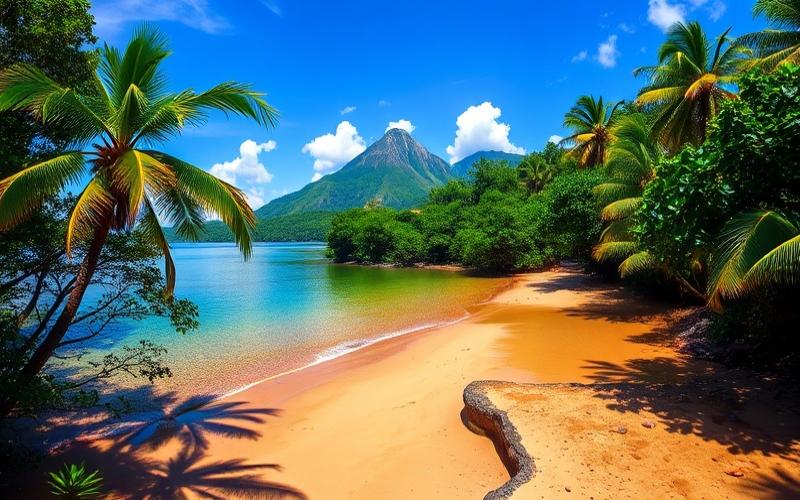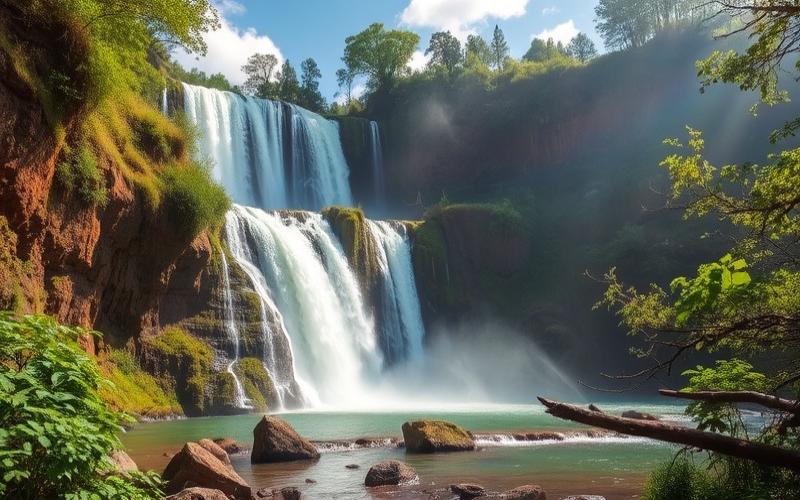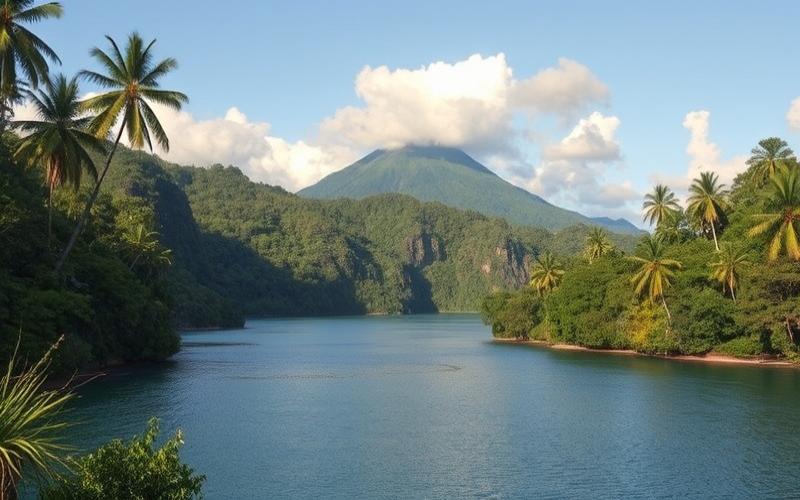
 Published on and written by Cyril Jarnias
Published on and written by Cyril Jarnias
Investing in Costa Rica: Mandatory Real Estate Insurance
Costa Rica, with its enchanting landscapes and tropical climate, is attracting more and more real estate investors from around the world. However, for those wishing to settle permanently or simply acquire property, it is crucial to understand the essential aspects of mandatory insurance in this country.
Navigating the world of real estate insurance in Costa Rica may seem complex, but a thorough knowledge of this field not only guarantees the protection of your investments but also peace of mind.
A Detailed Comparison of Essential Insurance Policies
This article provides a detailed comparison of essential insurance policies, from homeowners insurance to liability insurance, enabling future owners to make informed choices tailored to their specific needs.
Good to Know:
Mandatory insurance can vary depending on the location and type of property in Costa Rica. It is recommended to consult a local expert before any acquisition.
Understanding Homeowners Insurance in Costa Rica
Types of Homeowners Insurance Available in Costa Rica
In Costa Rica, several types of homeowners insurance are offered, allowing coverage to be tailored according to the owner’s needs:
- Basic Insurance: protects against fire, lightning, explosions, riots, falling objects, and certain weather events.
- Extended Insurance: includes basic coverage but adds specific natural risks such as earthquakes and floods, particularly relevant in Costa Rica’s geographical context.
- All-Risk Insurance: offers complete protection against all risks except those explicitly excluded in the contract.
- Liability Insurance: protects the owner from the financial consequences of accidents occurring on the property (medical expenses, legal fees).
- Contents Insurance: covers movable property inside the home (furniture, appliances, valuables, etc.).
| Insurance Type | Mandatory or Optional | Main Coverage |
|---|---|---|
| Building Structure | Optional | Fire, Earthquake, Major Damage |
| Contents (Movable Property) | Optional | Theft, Material Damage, Accidental Damage |
| Liability | Optional | Damage Caused to Others on the Property |
Differences Between Mandatory and Optional Insurance
- Mandatory Homeowners Insurance: Unlike car insurance which is mandatory (SOA), there is no legal obligation to take out homeowners insurance in Costa Rica. However, some banks or lenders may require it when granting a mortgage loan.
- Optional Insurance: All homeowners coverage is therefore optional and can be adjusted according to the owner’s profile and needs. Owners freely choose their coverage (structure, contents, liability, etc.).
Specific Features and Benefits of Homeowners Insurance in Costa Rica
- Extended coverage for natural risks (earthquakes, floods, volcanic eruptions) adapted to the country’s geographical reality.
- Flexibility: possibility to cover only the structure, the contents, or both, and to add specific options depending on the value of property or artworks.
- Transparent pricing: rates are relatively homogeneous between insurers, so the choice is mainly based on service quality and the company’s reputation.
- Service in English often available from brokers and insurers.
Comparison with Other Countries
- Homeowners insurance is not mandatory in Costa Rica, unlike some European or North American countries where it is required when purchasing real estate.
- Covered natural risks are more numerous and better adapted to Costa Rica’s climatic and geological specificities.
- Flexibility and customization of contracts are generally superior to those offered in many other countries.
Local and International Insurance Companies
- Instituto Nacional de Seguros (INS): Main public insurer, reliable and recognized, offering all ranges of homeowners insurance.
- Local Private Companies: Several local players offer competitive products, including Mapfre, ASSA, and Seguros Lafise.
- International Companies: Some international companies operate in the Costa Rican market, offering contracts adapted to expatriates and foreign investors.
Average Costs and Covered Elements
- The average cost of homeowners insurance generally ranges between 0.2% and 0.5% of the insured value of the house per year for standard coverage.
- For theft coverage of contents, the annual premium is around 1% of the value of the insured goods.
- Covered elements include: structure, contents, liability, relocation expenses, assistance in case of loss, indirect losses.
Reasons to Take Out Homeowners Insurance in Costa Rica
- Protection against frequent natural hazards: earthquakes, floods, landslides.
- Securing real estate assets and personal property.
- Coverage for risks of theft, vandalism, and liability.
- Peace of mind, especially for foreign residents and investors.
- Potential requirement from financial institutions in case of real estate financing.
Taking out homeowners insurance in Costa Rica guarantees financial security and the longevity of your real estate investment in the face of significant natural and human risks.
Good to Know:
In Costa Rica, owners can choose between mandatory and optional homeowners insurance, with the former mainly required for properties financed by mortgage loans. Mandatory homeowners insurance generally covers damage caused by natural disasters like earthquakes and floods, which are very common in the region, while optional coverage includes protection against theft or fire. Compared to other countries, homeowners insurance in Costa Rica often offers customized options to adapt to various types of properties, whether primary residences or vacation homes. Local companies like the Instituto Nacional de Seguros, as well as international insurers such as Mapfre and Assa, offer a wide range of insurance policies, with average costs depending on the size and location of the property. Taking out homeowners insurance is crucial not only to comply with legislation but also to ensure financial protection against risks specific to Costa Rica, thus guaranteeing security and peace of mind for owners.
Comparison of Mandatory Insurance for Property Owners
Overview of Mandatory Insurance for Real Estate Owners in Costa Rica
- Natural Disaster Insurance
There is no general legal obligation in Costa Rica requiring all private real estate owners to take out insurance against natural disasters (earthquakes, floods, etc.). However, this coverage is highly recommended, especially in high-risk areas.
Insurance companies offer policies covering damage caused by natural events, but it is up to the owner to choose to take them out. On the other hand, for real estate properties financed by a mortgage loan, the bank almost systematically requires insurance covering at least major risks (fire, earthquake, flood). - Liability Insurance
Liability insurance protects against bodily injury or property damage caused to third parties in the context of property ownership. Although highly recommended, it is not imposed by Costa Rican law for all private owners. It generally becomes mandatory if the property is used for commercial purposes (short-term rental, business, etc.) or required by the lessor or financial institution. - Specific Insurance Required by Legislation
The only insurance truly mandatory under Costa Rican legislation concerns motor vehicles (especially PLI for cars), but not private real estate property, except in the context of certain mortgage loans or commercial activities.
Additional insurance is available: protection against theft, accidental damage, extension of liability, etc.
Comparative Table of Main Real Estate Insurance Policies in Costa Rica
| Insurance Type | Legally Mandatory | Main Coverage | Indicative Annual Cost* | Main Companies |
|---|---|---|---|---|
| Natural Disasters | No (except loan) | Earthquake, Flood, Storm, Fire | 0.15-0.5% of insured value | INS, Mapfre, ASSA |
| Liability | No (except commercial) | Damage to Others, Injuries, Damage | From $100 USD | INS, Mapfre, Lafise, Oceanica |
| Multi-Risk Home Insurance | No | Structure + Contents + Theft Damage | 0.2-0.6% of insured value | INS, Mapfre, ASSA, Oceanica |
Main Insurance Companies in Costa Rica
- INS (Instituto Nacional de Seguros): historical leader, offers the most comprehensive range, under the supervision of SUGESE (Superintendencia General de Seguros).
- Mapfre: international insurer with customizable offers.
- ASSA, Lafise, Oceanica: private players offering customized policies.
Legal Implications in Case of Non-Subscription
Outside of specific situations (mortgage, commercial activity), there is no direct penalty for the absence of real estate insurance.
If an owner causes damage to others (e.g., a visitor’s fall due to a maintenance defect), they incur personal civil liability and can be sued. In the absence of insurance, they will have to bear the costs alone, which can be very high.
If the property is mortgaged and the insurance required by the bank is lacking, the loan contract can be terminated or the property seized.
Differences with Other Countries
| Country | Natural Disaster Insurance | Mandatory Liability | Specificities |
|---|---|---|---|
| Costa Rica | No (except loan) | No (except commercial activity) | Banks often require insurance |
| France | Yes (natural disasters) | Yes (homeowners) | Strict legal obligations |
| United States | No (outside risk zones) | No (except condominiums) | Varies greatly by state |
| Spain | Yes (certain risks) | Yes (condominiums) | Insurance often bundled |
Key Takeaways
– In Costa Rica, real estate insurance is generally not mandatory, except for certain loans or commercial uses.
– Liability insurance is highly recommended but rarely imposed by law.
– The insurance market is dominated by INS, but several private companies offer equivalent guarantees.
– Requirements are much less strict than in Europe, where legislation often imposes several insurance policies on owners.
Important:
In the absence of insurance, the owner takes a considerable financial risk in case of a claim or lawsuits for damage to others.
For any real estate investment, it is highly recommended to consult a local insurer or lawyer to tailor coverage to real needs and contractual obligations.
Good to Know:
In Costa Rica, real estate owners must subscribe to various mandatory insurance policies, including insurance against natural disasters, covering risks such as earthquakes and floods, as well as liability insurance for damage to others. These coverages, often more affordable than in other countries with similar requirements, vary by company, notably INS and Mapfre, offering different premium and coverage options. Non-compliance with these obligations exposes owners to fines and legal complications during real estate transactions. For comparison, in other countries, more specific insurance may be required, such as theft insurance or rental insurance, highlighting the pragmatic approach of Costa Rican legislation to local risks.
Covering Rental Risks: A Necessity for Property Owners
The importance of covering rental risks for real estate owners in Costa Rica lies in the protection of their assets and the security of their rental income. Appropriate rental insurance protects against the main risks related to renting, including unpaid rent and property damage.
Guarantees Offered by Rental Insurance:
- Coverage for unpaid rent, limiting financial losses.
- Reimbursement or coverage of refurbishment costs in case of damage caused by the tenant.
- Liability coverage for damage caused to third parties in the context of the property’s occupancy.
- Legal assistance in case of dispute with the tenant.
| Type of Guarantee | Protection Offered | Impact for the Owner |
|---|---|---|
| Unpaid Rent | Monthly compensation until resolution | Secures income streams |
| Property Damage | Reimbursement of repairs | Maintains property value |
| Liability | Coverage for damage to third parties | Reduces risk of lawsuits |
| Legal Assistance | Support and procedure fees covered | Facilitates dispute management |
Comparison of Insurance Required by Costa Rican Legislation:
- In Costa Rica, mandatory insurance in the real estate rental sector mainly concerns liability, which protects against damage caused to third parties (for example, fire spreading to a neighbor).
- Guarantees covering unpaid rent or damage are generally not imposed by legislation but can be taken out additionally by owners seeking enhanced protection.
| Insurance Type | Legal Obligation | Coverage Scope |
|---|---|---|
| Liability | Yes | Third Parties Only |
| Unpaid Rent | No | Optional, by contract |
| Property Damage | No | Optional, by contract |
Benefits of Good Coverage:
- Significant reduction in the risk of income loss in case of rent non-payment.
- Preservation of real estate value through quick coverage of repairs.
- Climate of trust with tenants, promoting lease stability.
- Peace of mind for the owner who protects themselves against the unexpected.
Challenges and Limits of Mandatory Rental Insurance:
- Mandatory insurance often limits itself to liability and does not offer coverage against financial risks (unpaid rent, damage).
- Claim processing times can be long.
- Guarantee exclusions (for example, owner’s gross negligence, absence of inventory) can limit the effectiveness of protection.
- The cost of additional insurance can reduce rental profitability, especially for small owners.
Practical Tips for Owners:
- Compare rental insurance offers to choose those that best cover the specific risks of their situation.
- Read the general conditions and exclusions of each contract carefully.
- Prioritize a detailed inventory at the entry and exit of the tenant to facilitate any claim.
- Consider subscribing to unpaid rent and damage insurance even if it is not mandatory, for increased peace of mind.
- Consult a legal advisor or specialized broker to optimize the protection of their investment.
Key Takeaway:
Good rental insurance, beyond legal obligations, is an essential tool for preserving the value and profitability of real estate assets for owners in Costa Rica.
Good to Know:
In Costa Rica, covering rental risks is of crucial importance for owners. Rental insurance not only protects properties in case of damage, but it also insures against unpaid rent, two major concerns in real estate management. Costa Rican legislation generally requires owners to subscribe to certain insurance policies, but the scope and guarantees can vary, sometimes only covering physical damage to properties. It is therefore essential for owners to carefully analyze the available options and consider additional protections to better secure their income. Comprehensive insurance can offer more extensive guarantees, including legal fees for rent recovery. However, limits such as exclusions of certain causes or high deductibles can pose challenges. To maximize protection, owners are advised to consult insurance experts to assess the specific needs of their property.
Liability: Preventing Legal and Financial Risks
In Costa Rica, civil liability in real estate imposes specific obligations on owners and tenants, particularly regarding insurance. Although homeowners insurance is not legally mandatory for all residential properties, there are unavoidable requirements in some cases (e.g., condominiums or tourist rentals) and a strong incentive to take out liability insurance to limit financial risks related to a claim or dispute.
Legal Obligations and Responsibilities
- Owners: They are responsible for damage caused to third parties due to their real estate property (e.g., construction defect, lack of maintenance leading to an accident). In case of harm suffered by a neighbor or any third party (fall of a poorly maintained wall onto public road), their liability can be engaged.
- Tenants: Responsible towards the owner for damage caused to the rented premises as well as to neighbors. Contracts may require subscription to insurance covering this liability.
- Mandatory Insurance: Certain situations impose subscription to specific coverage – notably in the context of condominium properties where the internal regulations can make insurance mandatory.
Legal and Financial Risks in Case of Non-Insurance
The main risks incurred are:
- Personal assumption of the full cost of compensation paid to victims.
- High expenses related to legal proceedings (lawyer, expert appraisal).
- Risk of seizure of personal assets if convicted without adequate coverage.
Summary Table
| Risk | Description | Potential Financial Consequence |
|---|---|---|
| Bodily Injury | Injury to a third party following an accident related to the property | High compensation |
| Property Damage | Deterioration of neighboring property due to water damage/fire | Repairs + compensation |
| Legal Dispute | Lawsuit filed by victim/neighbor | Lawyer/defense fees + potential fines |
Comparison of Available Offers
In Costa Rica, the market is primarily dominated by INS (Instituto Nacional de Seguros), but several international companies also offer their services through specialized brokers. Typical guarantees include:
- Liability towards third parties
- Legal defense recourse
- Fire/explosion
- Water damage
- Theft/vandalism
- Extreme weather events
Simplified Comparison Table
| Insurance | Third Party Liability | Legal Defense Recourse | Property Damage |
|---|---|---|---|
| INS | Included | Included | Fire/Water Included |
| International Insurer* | Included | Optional | Several Options |
*via specialized broker; conditions vary according to expatriate/non-resident profiles
Practical Tips for Owners/Investors
- Accurately assess the insured value – consider not only the building but also furniture if required.
- Read all exclusions carefully; some contracts do not systematically include theft/vandalism or major weather damage.
- Verify that the “legal defense recourse” guarantee effectively covers all legal fees likely to be incurred during a dispute with a third party.
- Require an annual certificate from the tenant if the contract imposes specific insurance.
- For expatriates/non-residents: opt for a multi-risk offer including international legal assistance adapted to the Costa Rican context.
To minimize your risks:
- Always compare several quotes tailored to your actual usage; adjust deductibles and insured amounts according to your risk tolerance.
In summary, even when not strictly required by Costa Rican law outside specific contexts, liability insurance constitutes essential protection against local real estate hazards; it preserves your assets against any unforeseen claim that could seriously threaten your personal or professional assets.
Good to Know:
In Costa Rica, real estate owners and tenants are legally required to subscribe to liability insurance to cover potential damage caused to third parties, whether injuries or property damage. Failure to subscribe to these insurance policies can lead to significant legal risks, including costly disputes and potentially high compensation in case of a claim. In the Costa Rican market, insurance offers vary but generally include essential clauses specific to the real estate sector, such as coverage for accidents in common areas of a building. To minimize risks, it is advisable to meticulously compare policies, taking into account coverage limits and exclusions. Choosing insurance that offers legal assistance can also prove to be a valuable asset. Furthermore, regular assessment of your property’s value and associated risks, as well as continuous adaptation of your contract, are recommended practices for optimal protection.
Disclaimer: The information provided on this website is for informational purposes only and does not constitute financial, legal, or professional advice. We encourage you to consult qualified experts before making any investment, real estate, or expatriation decisions. Although we strive to maintain up-to-date and accurate information, we do not guarantee the completeness, accuracy, or timeliness of the proposed content. As investment and expatriation involve risks, we disclaim any liability for potential losses or damages arising from the use of this site. Your use of this site confirms your acceptance of these terms and your understanding of the associated risks.

